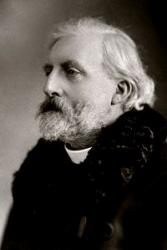Planning worship?
Check out our sister site, ZeteoSearch.org,
for 20+ additional resources related to your search.
- |
User Links
Person Results
T. Tertius Noble

1867 - 1953 Person Name: T. T. Noble Composer of "[On yester-night I saw a sight]" in Carols Old and Carols New Thomas Tertius Nobel (1867-1953) was born in Bath, England, educated at the Royal College of Music, and was a noted composer and organist. He served as a church organist in Cambridge and Colchester. He moved to Ely Cathedral in 1892 as organist and choirmaster, and in 1898 to York Minster, where he founded the York Symphony Orchestra, directed the York Musical Society, conducted the York Pageant, and revived the York Musical Festival after a lapse of 75 years. He became an honorary fellow of the Royal College of Organists in 1905. In 1913, he moved to New York City, where he was organist at St. Thomas’ Episcopal Church, and established its choir school and a boys’ choir. In addition to composing, he wrote about music education, and helped edit the 1916 Protestant Episcopal hymnal, and served on the music committee that prepared its 1940 successor. He wrote a wide range of music, but only his services, anthems and hymn tunes are still performed regularly. Died: May 4, 1953, Rockport, Massachusetts.
http://www.hymntime.com/tch/
T. Tertius Noble
Charles William Stubbs

1845 - 1912 Person Name: C. W. Stubbs Author of "The Virgin and Child" Stubbs, Charles William, D.D., was born at Liverpool, Sept. 3, 1845, educated at the Royal Institution School, Liverpool, and Sidney Sussex College, Cambridge; B.A. in honours 1868, M.A. 1876, D.D. 1894. Ordained in 1868, he has held some of the most important positions in the Church, including the Deanery of Ely, and is now (1907) Bishop of Truro. His published works are numerous, but do not come, except in the most remote degree, into the realm of hymnology. In his Brythhoth’s Prayer, and Other Poems, 1899, the hymn "We hail Thee, King of kings! Imperial Christ" appeared (p. 66). In Horder's Worship Song, 1905, it is slightly altered and abbreviated as “We hail Thee, King of kings, Eternal Christ."
--John Julian, Dictionary of Hymnology, New Supplement (1907)
Charles William Stubbs


 My Starred Hymns
My Starred Hymns


